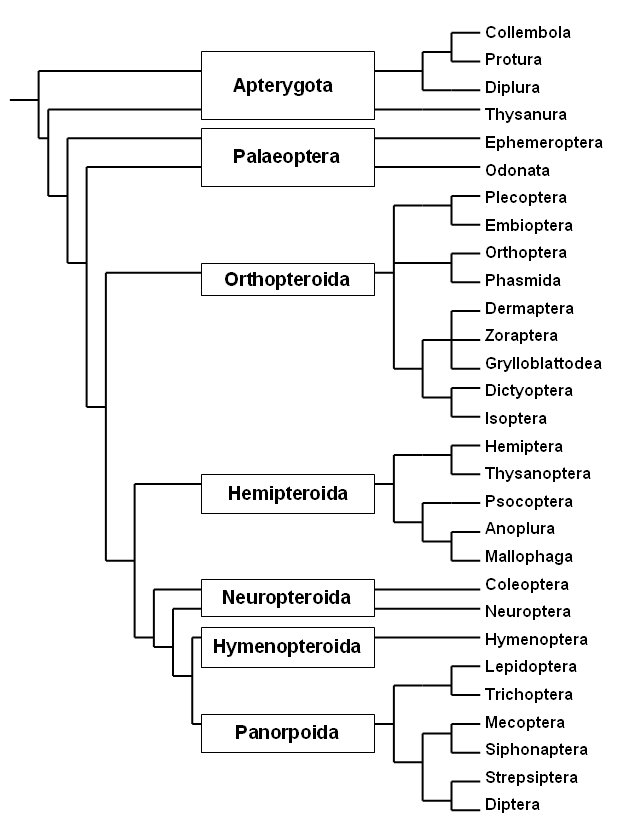on the face of it.. this is utter bullshit. The nuclear-cytoplasmic incompatibilities alone, to say nothing inter-genome incompatibilities, recessive lethals now expressed etc would make this impossible. Oh, and lets not forget the gene regulation of metamorphosis, and how this would basically make genome regulation a Genome Acquisition Cluster-Fuck.Worst paper of the year?
A new paper in the Proceedings of the National Academy of Sciencee makes the bizarre and completely unsupported claim that the two stages of the butterfly life cycle: caterpillar and volant adult, result from a hybridization event, with the caterpillar resulting from a butterfly mistakingly mating with an onycophoran (velvet worm). Instead of a single lineage evolving two different life stages, then, each stage reflects a completely independent evolutionary event.,
An article on this paper in Scientific American first explicates the theory:
In the current issue of Proceedings of the National Academy of Sciences (PNAS), Donald Williamson, a wheelchair-bound 87-year-old zoologist from the University of Liverpool in England, suggests that the ancestors of modern butterflies mistakenly fertilized their eggs with sperm from velvet worms, also known as onychophorans. “People have been trying to find one solution that covers all of metamorphosis,” Williamson says. “I say it’s a change in taxon during development.”
Velvet worms, which fall between worms and insects on the tree of life, have soft-bodies and superficially resemble caterpillars, particularly the larvae of an early butterfly relative known as Micropterix. Velvet worms have evolved a variety of elaborate fertilization procedures. Males are known to place sperm packets not on the female’s genital opening, but rather on skin tissue, which the sperm penetrates before migrating to the ovaries.
Williamson believes that an ancient insect accidentally picked up that sperm, and butterflies now contain two developmental programs so they live half their life as velvet worms and half their life as winged butterflies.
“Animals have been able to hybridize since they invented sex,” Williamson says. “With external fertilization, there’s always the possibility that some sperm will fertilize the wrong egg.”
and then gathers the reaction of other scientists, which is uniformly negative:
However, scientists asked to comment on Williamson’s theory were taken back by it and surprised it made it into such a prestigious journal. For example, from insect paleontologist Conrad Labandeira of the Smithsonian National Museum of Natural History in Washington, D.C.: “You’re kidding!”
After looking over the paper, Labandeira pointed out more substantial criticisms. Hybridization between closely related species sometimes occurs in the animal kingdom, but it is highly unlikely that the sperm of a velvet worm could fertilize a distantly related insect egg and produce a viable embryo. He also raises the question of where the genetic program controlling metamorphosis would come from.
“If I was reviewing [this paper] I would probably opt to reject it,” he says, “but I’m not saying it’s a bad thing that this is published. What it may do is broaden the discussion on how metamorphosis works and…[on]…the origin of these very radical life cycles.”
Insect developmental biologist Fred Nijhout of Duke University took a less diplomatic view of the article saying it would be better suited for the “National Enquirer than the National Academy.
Besides being inherently implausible, the theory can be easily refuted by DNA analysis, which should show, in butterflies, two completely disparate genomes, one resembling that of onycophorans.
Now who communicated this bizarre, unsupportable paper to one of the world’s most prestigious journals? Think about it: who has made their careeer asserting that all of evolution results from lateral gene transfer and hybridization?
Lynn Margulis.
Margulis had some great ideas early in her carreer, most famously the bacterial endosymbiont idea of the origin of mitochondria. She’s deservedly famous for pushing those ideas in the face of serious doubt. But lately she’s been spreading bizarre ideas about hybridogenesis being the main driver of evolution.(I was particulary distressed by the book on speciation she wrote with her son Dorian Sagan — also son of Carl Sagan, to whom Margulis was married — Acquiring Genomes: A Theory of the Origins of Species [2002], which argued that hybridization is a pre-eminent driver of speciation. Fortunately, the book has had zero impact on the field of speciation.)
Margulis is showing symptoms of what I call the Big Idea Syndrome, to wit: “Whatever I study is the most important thing in evolution — in fact, the driving force of evolution.” We’ve seen it before with developmental plasticity, epigenesis,evo devo, and other such buzz-fields. It’s all too tempting to think that one’s pet idea applies widely, or even universally.
PNAS of course, permits elected members of the Academy to promote papers they like by “communicating” them and adjudicating the reviews, which were often solicited by friends of the member or those known to be favorable to a paper’s results. This has resulted in the journal’s publication of some egregious work on the past; Linus Pauling’s papers on vitamin C are the most famous example.
Fortunately, this situation is changing, and soon PNAS manuscripts will receive the same rigorous review as regular journals offer — and bigwigs will no longer be able to push substandard work into publication.
Hybridogenesis is only really possible between closely related taxa, or because of endosymbiosis or parasitism in very simple organisms. Oh, and lets not forget about pathogens and transposons, but... not like this....
Oh, and here is a simplified image of the most up to date phylogeny of major insect taxa.

You will note how what he is saying is an ancestral clade, the Lepidopterans for the homometabalous insects is actually highly derived relative to the coleoptera, which he claims are in fact derived from lepidopterans...
in the words of Anguirus' girlfriend
"Who needs evidence when you have stupidity?"